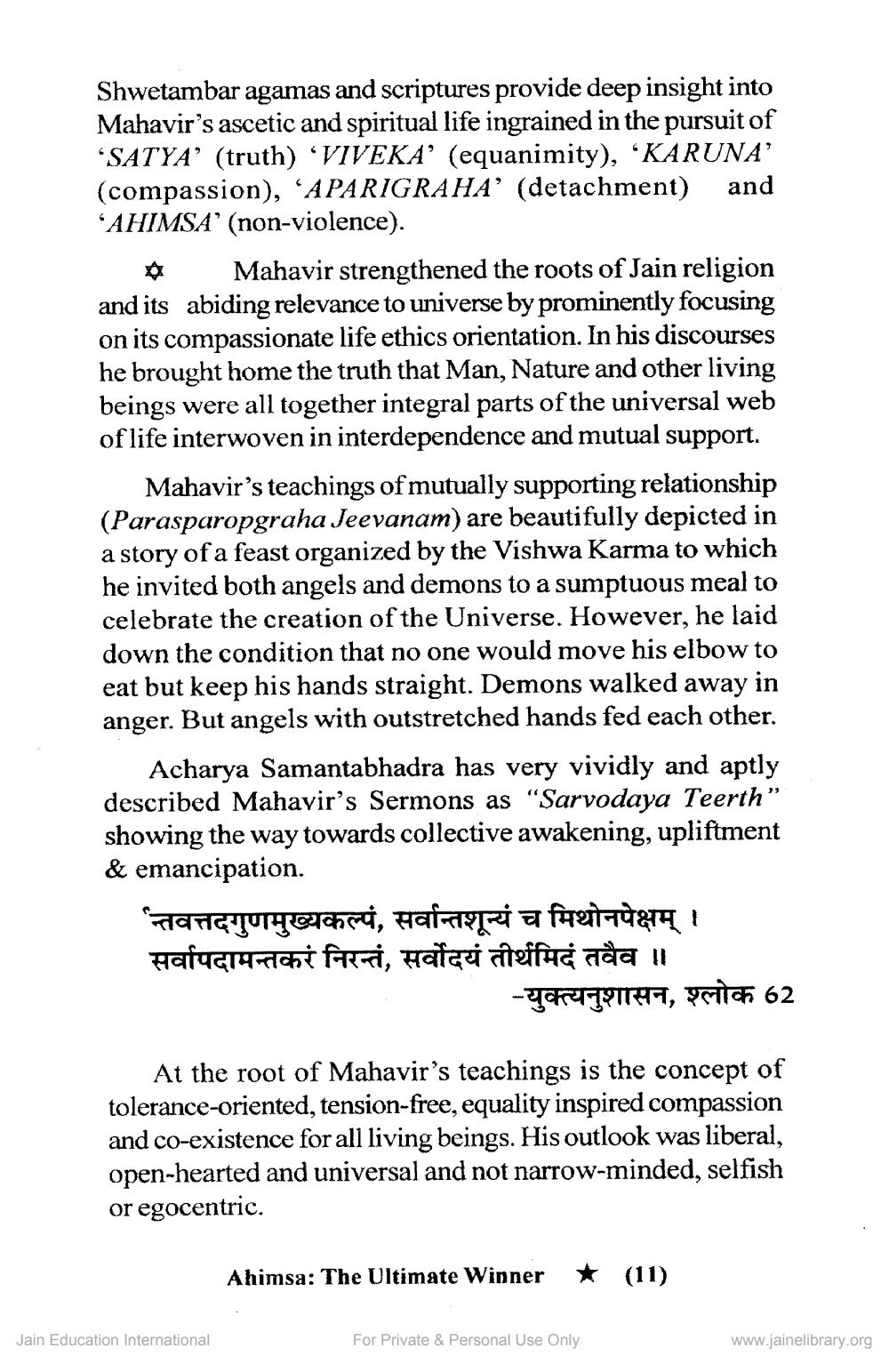________________
Shwetambar agamas and scriptures provide deep insight into Mahavir's ascetic and spiritual life ingrained in the pursuit of ‘SATYA' (truth) `VIVEKA' (equanimity), “KARUNA' (compassion), 'APARIGRAHA’ (detachment) and “AHIMSA' (non-violence).
Mahavir strengthened the roots of Jain religion and its abiding relevance to universe by prominently focusing on its compassionate life ethics orientation. In his discourses he brought home the truth that Man, Nature and other living beings were all together integral parts of the universal web of life interwoven in interdependence and mutual support.
Mahavir's teachings of mutually supporting relationship (Parasparopgraha Jeevanam) are beautifully depicted in a story of a feast organized by the Vishwa Karma to which he invited both angels and demons to a sumptuous meal to celebrate the creation of the Universe. However, he laid down the condition that no one would move his elbow to eat but keep his hands straight. Demons walked away in anger. But angels with outstretched hands fed each other.
Acharya Samantabhadra has very vividly and aptly described Mahavir's Sermons as "Sarvodaya Teerth” showing the way towards collective awakening, upliftment & emancipation. 'न्तवत्तदगुणमुख्यकल्पं, सर्वान्तशून्यं च मिथोनपेक्षम् । सर्वापदामन्तकरं निरन्तं, सर्वोदयं तीर्थमिदं तवैव ॥
- FTS149, Pritch 62
At the root of Mahavir's teachings is the concept of tolerance-oriented, tension-free, equality inspired compassion and co-existence for all living beings. His outlook was liberal, open-hearted and universal and not narrow-minded, selfish or egocentric.
Ahimsa: The Ultimate Winner
*
(11)
Jain Education International
For Private & Personal Use Only
www.jainelibrary.org




